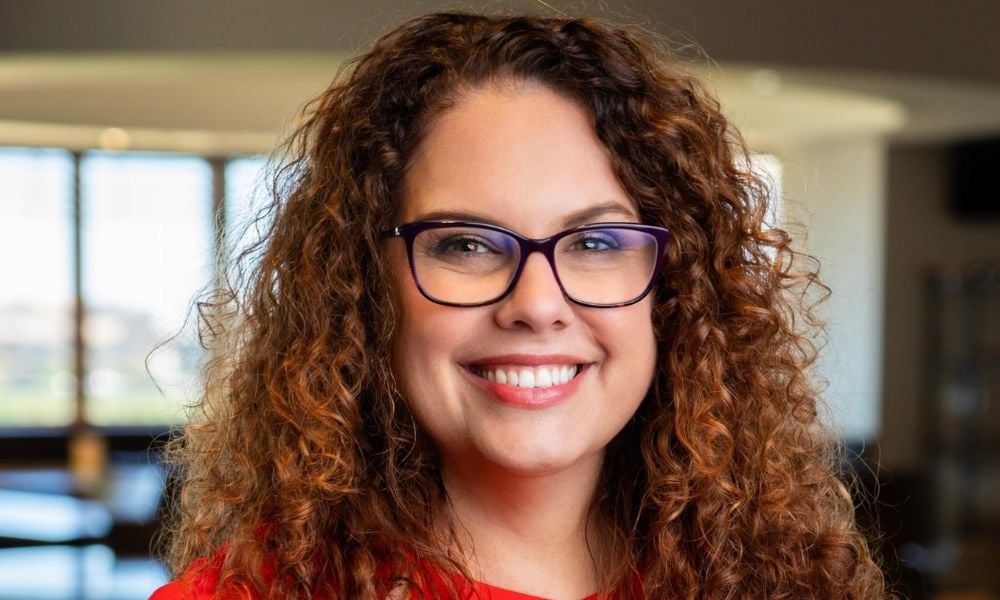
'I'm making sure that the people in those positions are able to be as successful as possible'

Alicia Goodman was touring a plant on one of her first days on the job at Novartis when she knew that the pharma/biotech realm was the right place for her.
“One of the drugs that was being manufactured at this plant was an anti-epileptic medicine, and I had a young son who had epilepsy and had had seizures,” Goodman said. “Just knowing that I could be a part of that, it was very personal for me. I just have never looked back.”
This month, Goodman was appointed as CHRO of global blood supply firm Cerus Corporation, in advance of “key global commercial and pipeline initiatives,” a press announcement said. “As a leader within the global life sciences sector, Alicia brings a comprehensive human resources work experience that will be immediately applicable to our current business and future product launches.”
It’s not her first foray into the biotech space – before coming to Cerus, she was HR head of Novartis AG and Millendo Therapeutics, and notably was on hand when Aimmune Therapeutics was acquired by Nestle Health Science, before and after the transition. She was also the head of her own consultancy firm which supported CHROs in the biotech field.
One of the main reasons Goodman is drawn to working in biotech and pharma, she said, is because she gets to feel like she’s making a difference, even if it’s a small one.
“Part of our job as CHROs is to make sure we have the right people in the right position to make sure that we're creating environments where people can do their best work, and remove barriers that might impact their best work,” she said. “And while I'm not the one sitting in the lab running the trials and doing all of that, I’m making sure that the people in those positions are able to be as successful as possible.”
Being with a smaller company of around 300 employees, but with a strong growth mindset and big plans in the pipeline, presents an opportunity for Goodman to flex her HR muscles and implement new systems.
However, coming into an organization with many senior-level employees has its own unique challenges, she explained, like balancing change while not disrupting established routines. Employee roles are not “siloed” as in larger corporations, she said, making it challenging to organize and introduce structures.
“There's a lot of tenure within this organization, so a lot of people that believe in the mission as much as I do – probably more, because they've been here longer. It's really easy to say, ‘Here's where we are, here's where we should be, and let's move,’ but then you're creating a lot of stress and friction in the system,” she said.
To deal with this challenge, Goodman and her team have given themselves a lot of space and time to plan and maneuver. Strategies include anticipating staff retirement and ensuring that people are positioned to replace them.
“They've given us this runway to plan what the future looks like, to fill their positions with people that have grown through the organization, and to make sure that we have that right structure and the right people in place going forward.”
Cerus has a “solid foundation” of diversity, Goodman said, for example there is a higher ratio of women than men throughout the organization and at the board level. Although she admits that company culture often falls to HR, true demonstration of values has to come from leadership.
“If you have values that say one thing, and your leadership team is exhibiting other behaviors – no HR team can turn that around,” she said. “People are going to be influenced by their direct manager more than anything.”
Goodman cites “conscious competence” as her philosophy around ensuring organizational top-down values are carried out.
“You have to constantly be watching and be conscious of the behaviors that are happening, which is not always easy. You do have to be very vigilant and very conscious of things that are happening around you, and especially your own behaviors,” she said. “So I'm quick to call things on the carpet if it doesn't match our behaviors or our values that we want to see. And I would hope that other people would as well.”
Cerus, headquartered in Concord, California, develops and supplies technology and pathogen-reduced blood components to hospitals and blood centers, and aims to be the “preeminent global blood products company” according to its website.